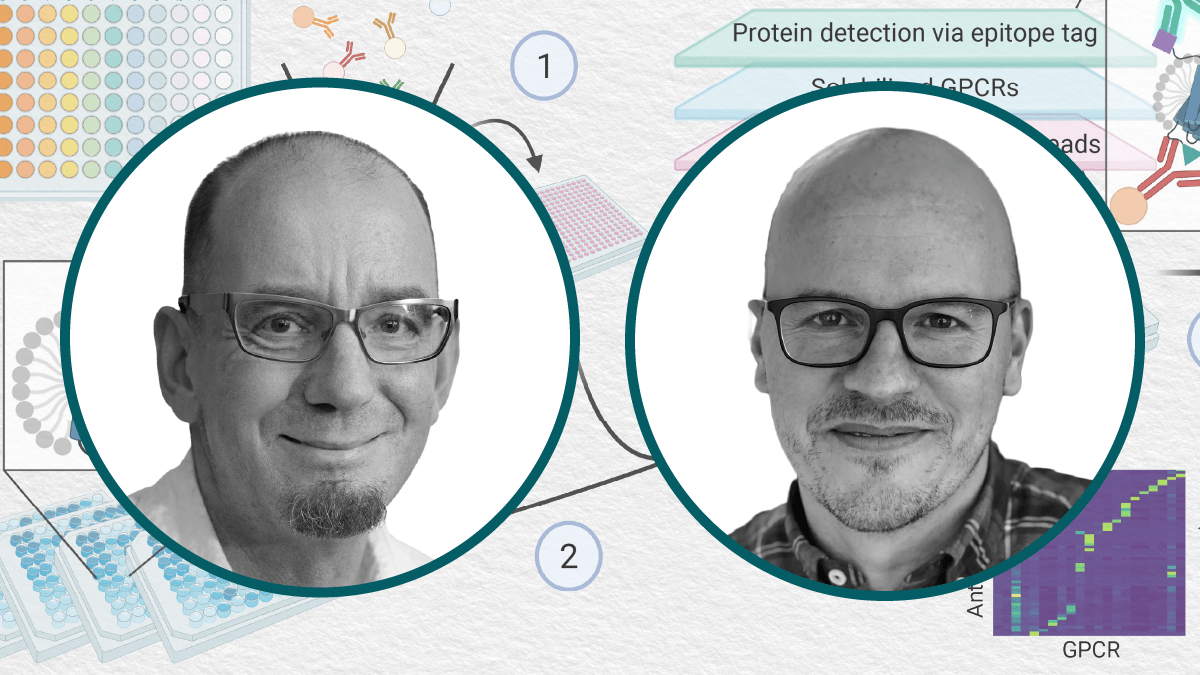New experimental procedure validates selectivity of antibodies
The selectivity of antibodies against important membrane-bound receptors has been validated in a new experimental procedure developed by SciLifeLab researcher Jochen Schwenk in collaboration with Rockefeller University researchers, while SciLifeLab researcher Arne Elofsson used AlphaFold 2 – a computational tool that predicts protein structure – to support the wet lab data.
G protein–coupled receptors (GPCRs) control critical cellular signaling pathways. Therefore, therapeutic molecules targeting these receptors, such as anti-GPCR antibodies, are being developed. But testing these antibodies is not entirely straightforward. The receptors are embedded into cell membranes and are challenging to study because the members of different families are so similar.
On top of this, the performance and selectivity of antibodies highly depend on the sample preparation and application used. To get around this, the researchers created a multiplexed pipeline to produce and extract 215 GPCR receptors and challenge over 400 antibodies from the Human Protein Atlas with receptors from different families.
“I am a huge fan of interdisciplinary projects. Teaming up with GPCR experts at Rockefeller – who built the receptor libraries – to develop applications for studying receptor interactions has created a lot of new possibilities. And after exchanging a few ideas with Arne Elofsson, we could even test his latest tools to support our wet lab data” says Jochen Schwenk, SciLifeLab researcher and KTH Professor. ”This demonstrated how open collaboration and sharing of data can unlock new perspectives from complementary expertise. It will be exciting to see what we can learn next”.
To better understand the findings of the wet lab experiments, Arne Elofsson predicted the protein structure with the computational tool AlphaFold 2.
“It was fascinating to apply our expertise in structural modelling to the data from Jochen. It clearly highlights both the usefulness and limitations of our methods to predict protein-protein interactions.” says Arne Elofsson, SciLifeLab researcher and Stockholm University Professor.
Read the article in Science Advances and discover the open-access tool the researchers developed.





